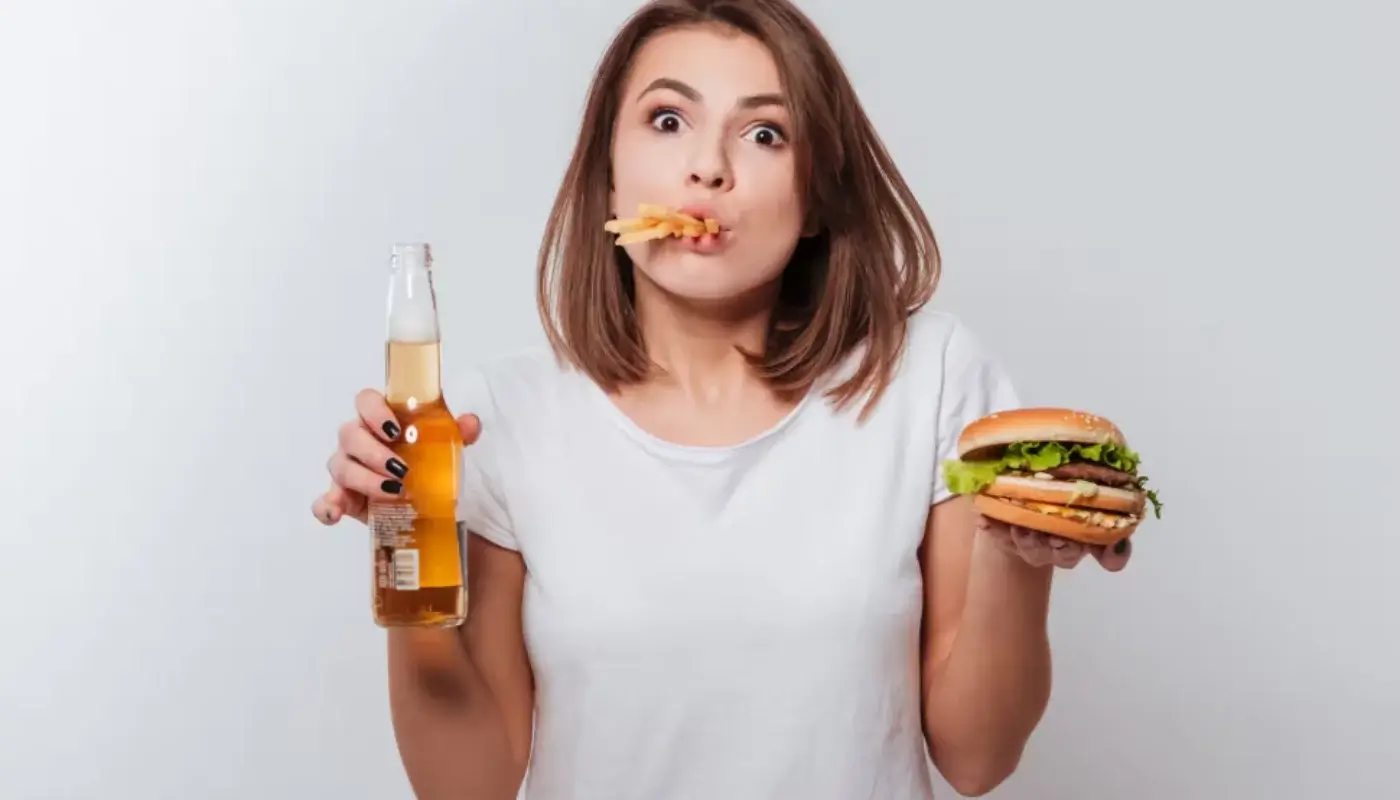Can eating fast cause weight gain?

The real secret of proper nutrition and a healthy lifestyle is not just counting calories, but also chewing food well and slowly. If you regularly eat food too often and without chewing it well, this will lead to weight gain and the gradual appearance of various problems in the body. Let's look at what changes occur in our body when we eat quickly and talk about how this affects our metabolism, appearance and overall health.
Why shouldn't you eat in a hurry?
The body fails to absorb important microelements
Eating food without chewing it properly leads to its incomplete digestion. Half-digested food makes it difficult for the intestines to properly absorb valuable minerals such as selenium, iodine, iron, and copper. A deficiency of these minerals can disrupt the functioning of the thyroid gland, slow down metabolism, cause swelling, and lead to excess weight gain.
Incomplete digestion of proteins and fats
If you eat protein-rich foods such as meat without chewing them properly, they will not be fully absorbed by the body. This leads to a constant need for quickly digestible carbohydrates (for example, sweets or bakery products), which, in turn, creates the basis for gaining excess weight.
Heaviness in the stomach and bloating
Insufficiently chewed food causes a feeling of heaviness in the stomach. Therefore, a person refuses to eat "heavy" foods that are beneficial for the body, and instead becomes inclined to eat light, but harmful sweets and bakery products.
The brain feels full late
The signal about the fullness of food reaches the brain within 7-10 minutes. If you eat food in a hurry, you can eat much more than you need.
Recommendation: Take small breaks during meals, this will help you prevent overeating.
Appetite for unhealthy foods increases in the evening
If you eat in a hurry and do not eat enough during the day, the body tries to restore the "missing" energy in the evening. Often it does this with unhealthy, fatty or sweet foods.
Recommendation: Start a conscious eating practice - just 15 minutes of calm and leisurely eating will allow you to fully control your appetite.
You should chew each bite 30–50 times
Dietitians and advocates of conscious eating give the following recommendations:
- Solid foods (meat, vegetables, nuts) - chew 30–50 times;
- Chew soft foods (porridge, soup, fruit) – 15–20 times.
According to a 2014 study by Japanese scientists, people who chewed each bite more than 40 times ate less food and had significantly lower levels of the hunger hormone ghrelin in their bodies.
Dentist problems can also be the cause of improper chewing
Sometimes people simply get used to chewing food quickly. However, in some cases, this problem is not due to everyday habits, but to an uneven bite of the teeth. If the teeth are not closed properly, chewing becomes ineffective, which can seriously affect the body's digestive system and metabolism.
If you experience the following symptoms, you should consult a dentist:
- If you have difficulty chewing solid foods;
- If you have a habit of chewing on only one side;
- If your jaw is loose or you feel pain;
- If your teeth are uneven.
Eat each meal consciously, slowly and in a good mood. This will not only have a positive effect on your body's health, but also on your appearance and emotional state. Eat right and be healthy! Read “Zamin” on Telegram!
Ctrl
Enter
Found a mistake?
Select the phrase and press Ctrl+Enter 













